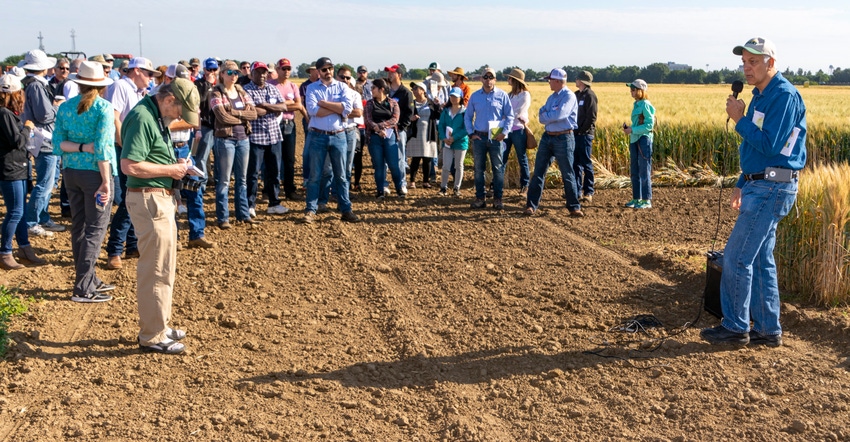
A firm that ranks global university systems on 51 different subjects rated the University of California, Davis, overall at No. 2 in the world for its agriculture and forestry academics, and its veterinary school in the same position under a relatively new category that lists the top veterinary programs in the world.
Cornell University in Ithaca, NY ranked fourth in the veterinary category and fifth in agriculture and forestry as the only other U.S. institution to command top-10 status in both categories.
While the listing specifically names the Davis campus, what it says for some of the flagship programs there – agriculture and natural resources – is noteworthy. It serves as a "job well done" for faculty and staff; it suggests students there are learning and doing great things; and, perhaps not as forefront, but nonetheless vital, it suggests world class science is coming out of the Land Grant college a few minutes by car from the State Capitol.
Though not named, one cannot divorce the campus and its agricultural programs from the kinds of work being done today by the state's 158 Extension farm advisers and 120 campus and county-based specialists. Surely not all those advisers and specialists work in agriculture, but a good number of them do.
The university is poised, through its work on range land management, to help California control the conflagrations that have destroyed lives and property over the past few years. Better managing the state's forests and helping the federal agencies that control public lands will go a long way towards improving the quality of life for California residents while positively addressing the environment and wildlife.
Some of this work coming out of UC Davis has human health impacts, like we reported in 2015 on the efforts of two graduate students to improve wheat as a human food staple. In a pre-COVID world, where field days and Extension events were oftentimes packed, things like the annual weed science day in mid-summer were always filled to capacity with those trying to understand how best to control invasive weeds in agricultural and aquatic systems. Moreover, as herbicide resistance continues to be a critical issue for growers, researchers continue looking for answers.
Every member of the California Legislature should understand the kinds of world class research and Extension programs ongoing at UC Davis. There is a high likelihood that they would be welcomed on campus, in the labs and on the research farm to see first-hand the projects ongoing and learn the challenges and questions that face farmers in the state they were elected to represent. Perhaps that could improve how they set public policy and funding priorities.
Though the notoriety rests with the Davis campus, knowing the system-wide agricultural programs that extend from the campus to nine research and extension centers and three agricultural experiment stations, and how the veterinary school likewise has a statewide reach, the real benefactors of such world-class science are the residents of California.
About the Author(s)
You May Also Like






